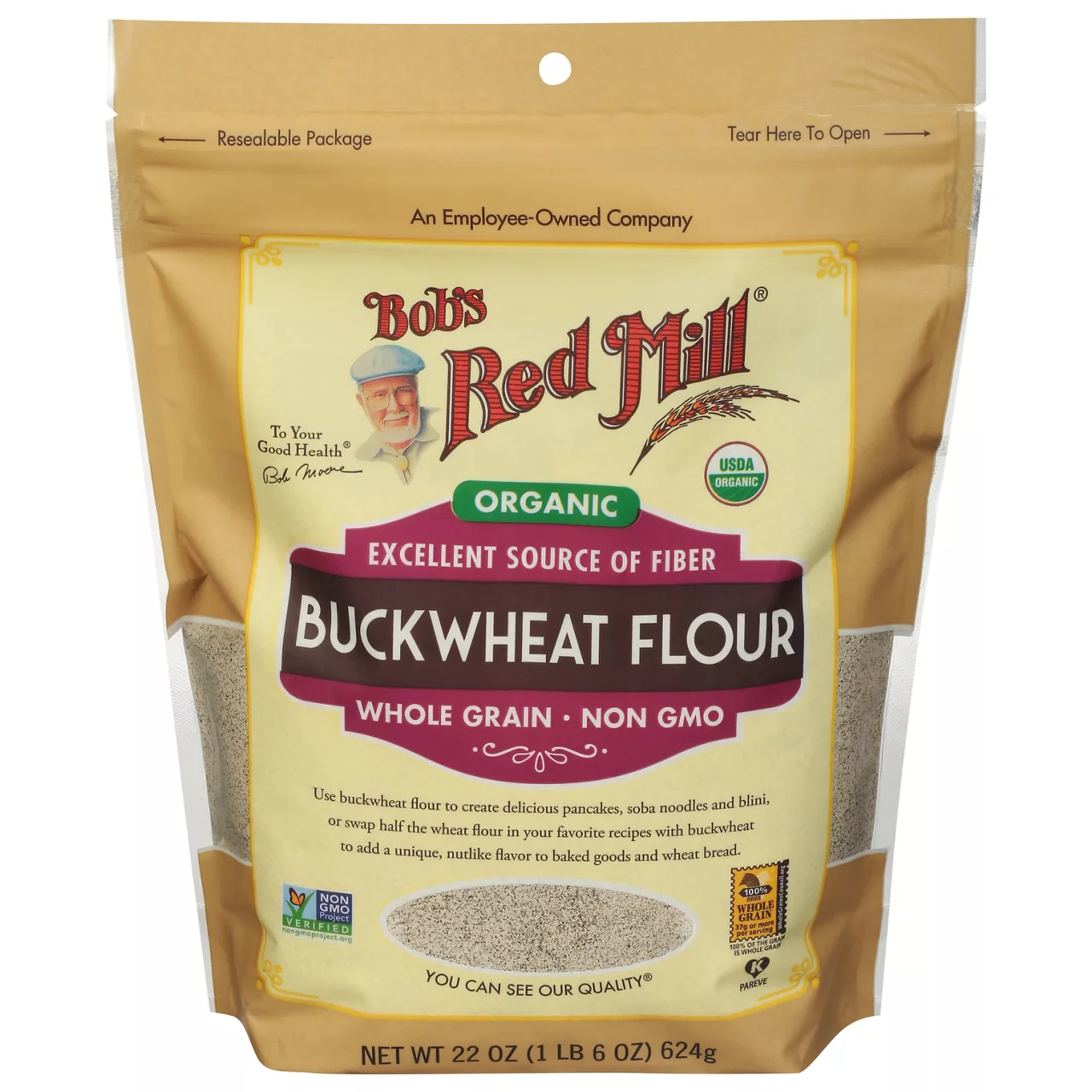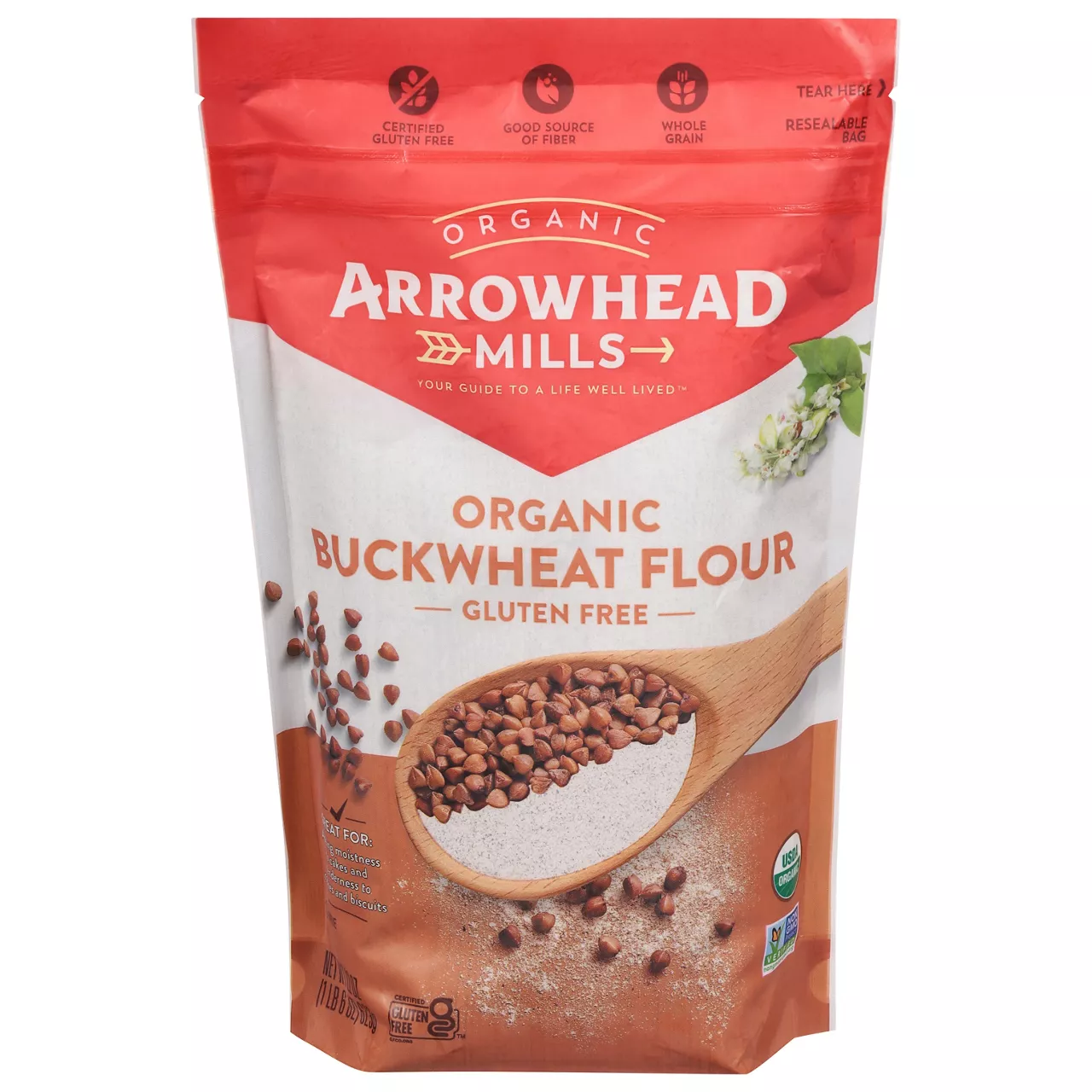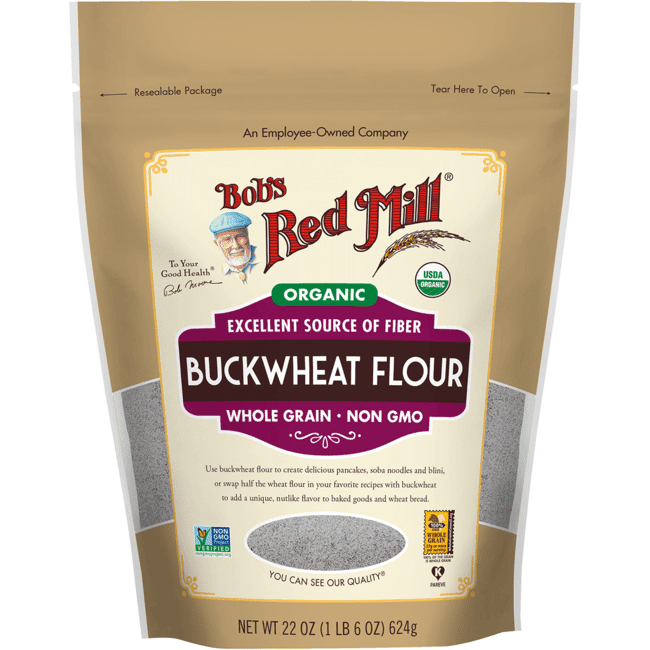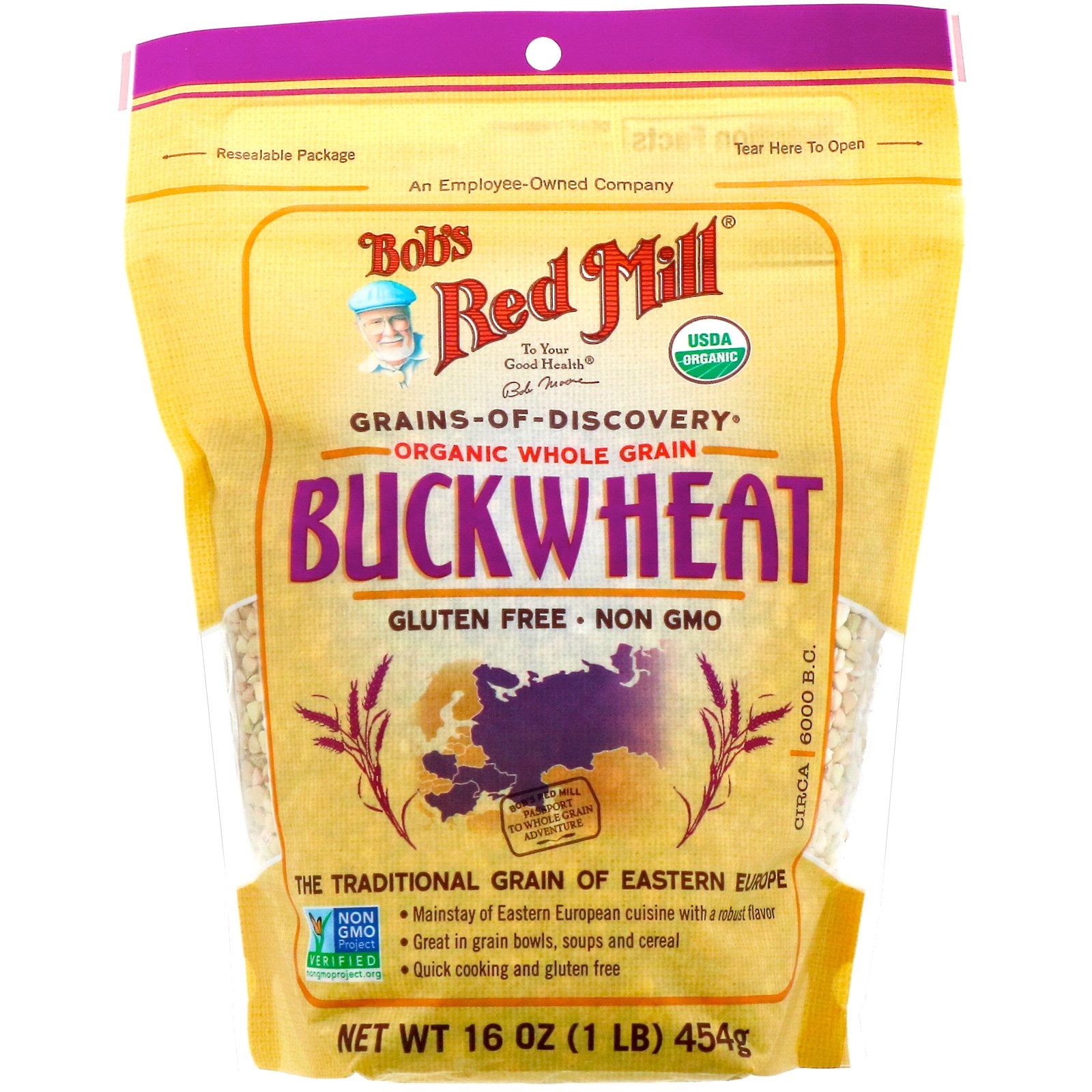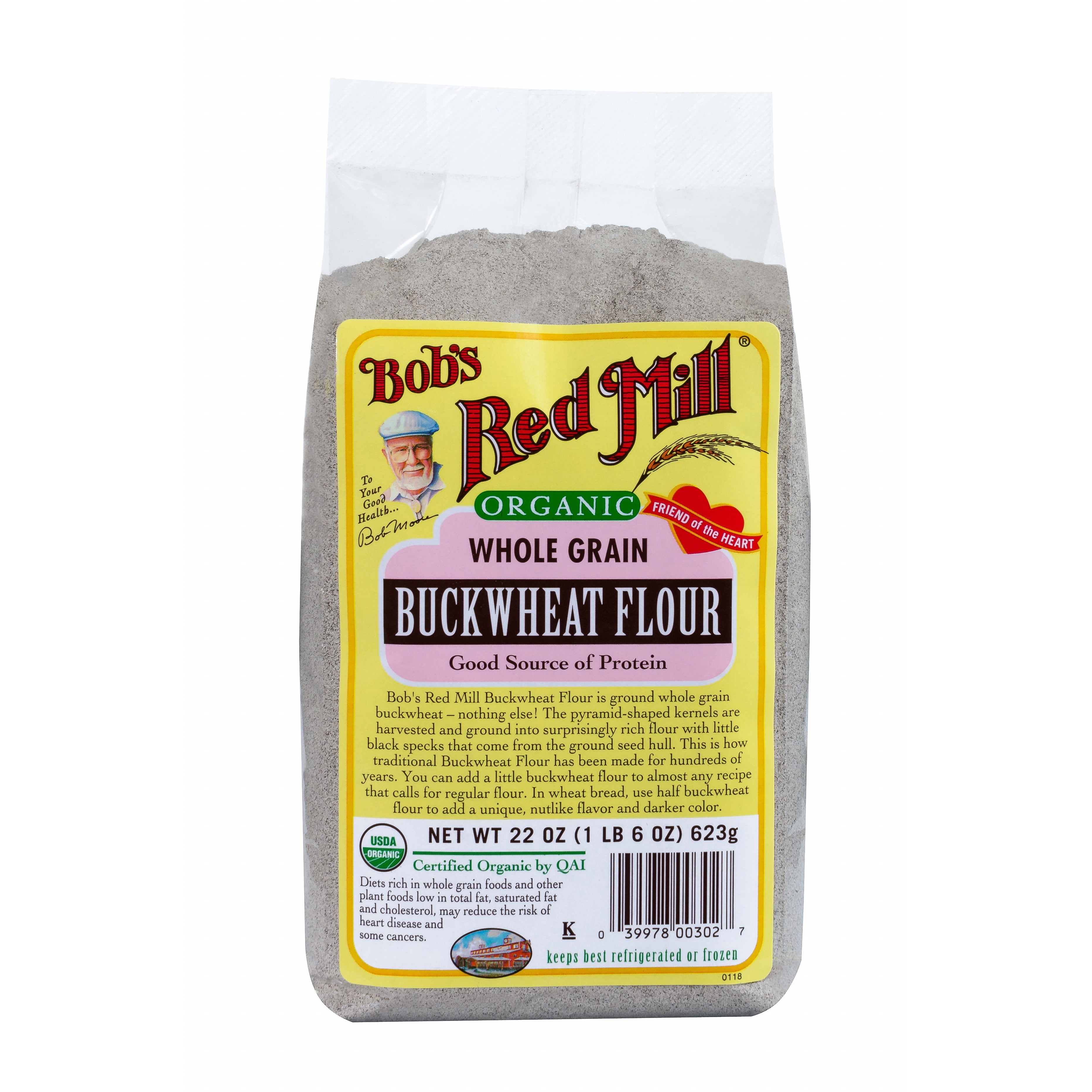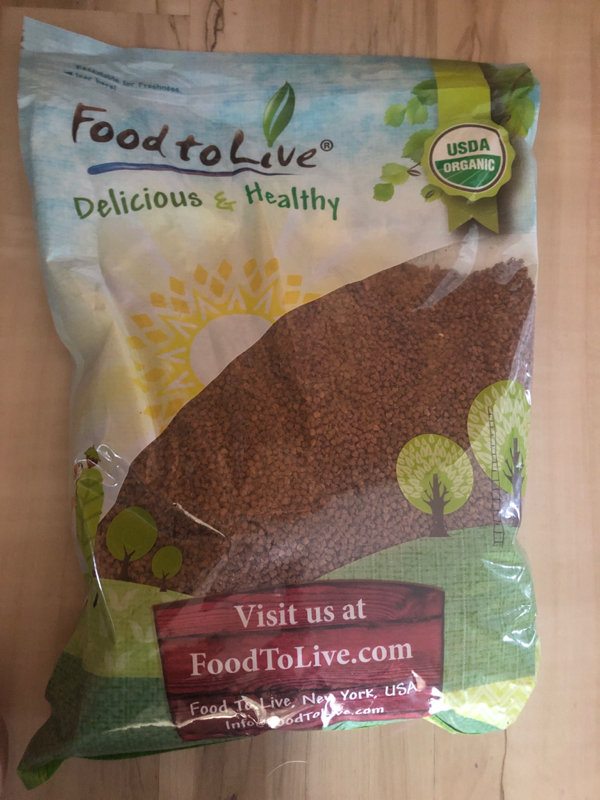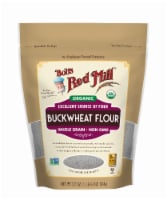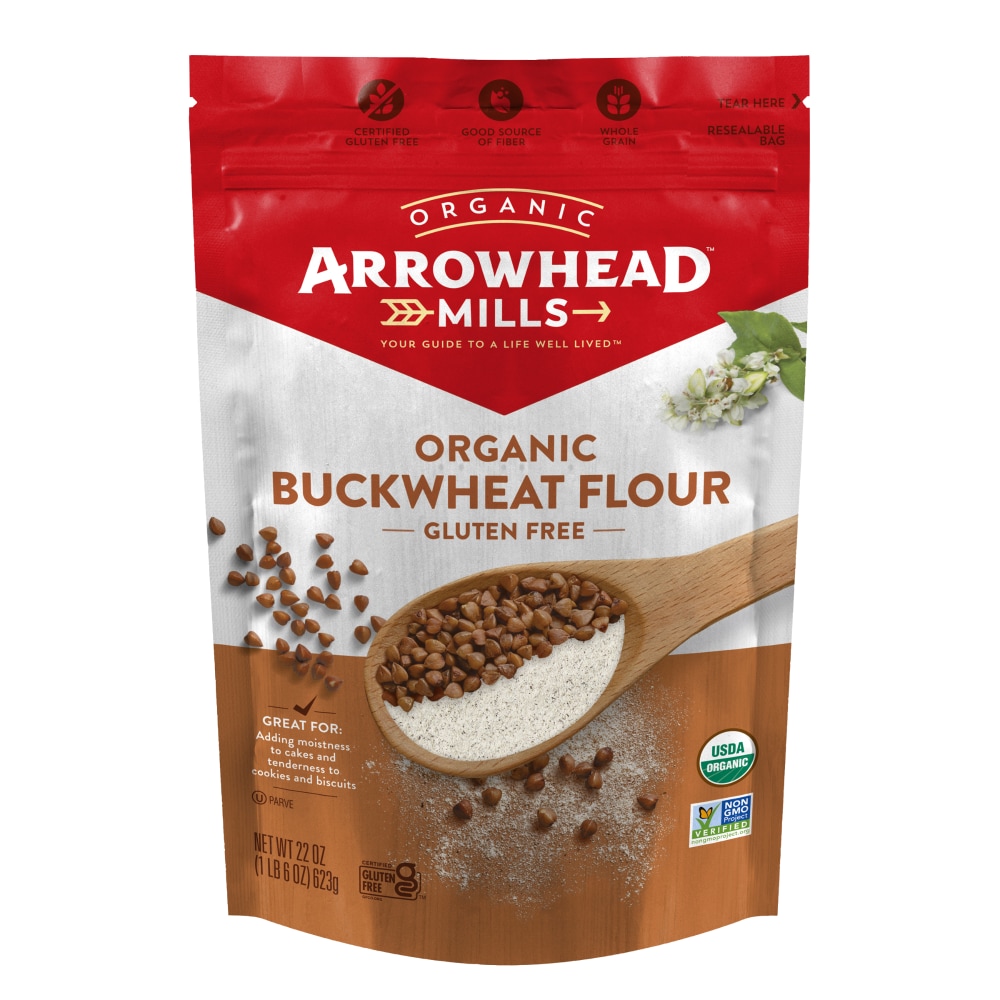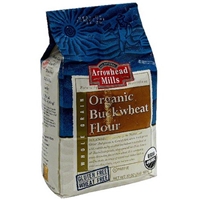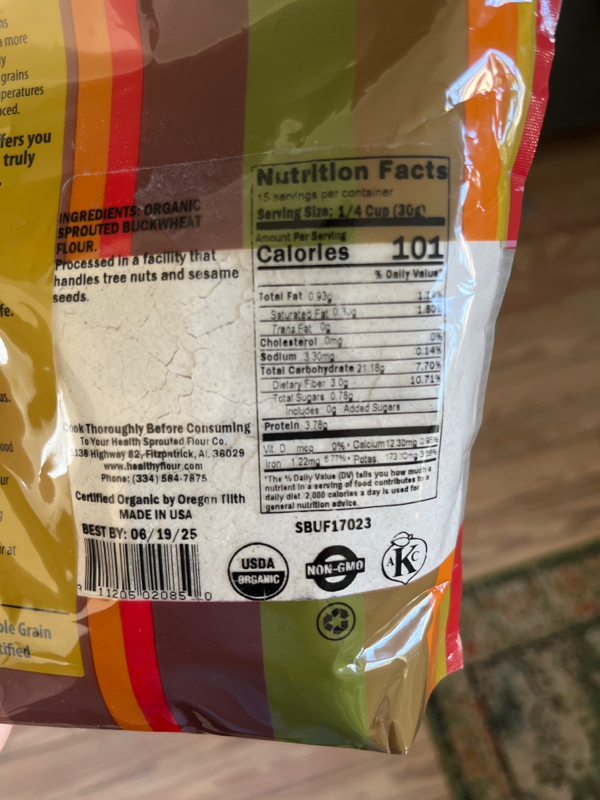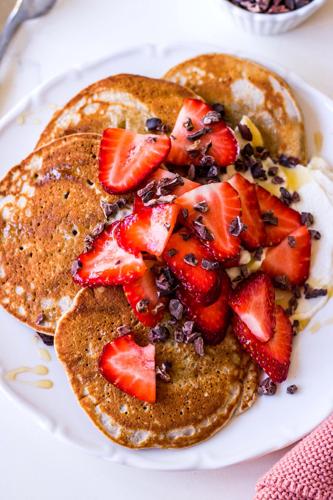BREADS
DESSERTS
BREAKFAST AND BRUNCH
Buckwheat Flour
Buckwheat flour is a gluten-free alternative to traditional wheat flour, made from ground buckwheat groats. This versatile, nutrient-dense flour has a distinct nutty flavor and light brown color. Commonly used in gluten-free and ancient grain recipes, it is a popular choice for individuals with gluten intolerances or those simply looking to explore different types of flour.
The use of buckwheat flour extends across various culinary traditions, from the Japanese soba noodles to French galettes and Russian blini. It can be substituted for wheat flour in baked goods and pancakes, providing a unique texture and taste, while also offering a rich source of essential vitamins, minerals, and plant-based protein.
82%
CARBS
4%
FAT
15%
PROTEIN
83 Buckwheat Flour Products
Bob's Red Mill Buckwheat Flour, Organic, Whole Grain
Arrowhead Mills Organic Buckwheat Flour Gluten Free
Bob's Red Mill Flour, Organic, Whole Grain, Buckwheat
Bob's Red Mill Organic Whole Grain Buckwheat
Bob's Red Mill Organic Whole Grain Buckwheat Flour
Rice
Bobs Red Mill Organic Flour Buckwheat - 22 Oz
Arrowhead Mills Organic Buckwheat Flour
Arrowhead Mills Flour Buckwheat 32 Oz
Gluten Free Sprouted Buckwheat Flour
Buckwheat Flour Is Frequently Used With
Buckwheat Flour FAQ
Buckwheat flour is a gluten-free powerhouse of nutrition that is versatile and suitable for those with dietary restrictions. However, people often neglect it due to unfamiliarity, not understanding its inherent benefits, or how to best utilize it in their cooking. The primary mistake people make when working with buckwheat flour is utilizing it as an exact 1:1 substitute for wheat flour, which can lead to dry and crumbly results due to its lack of gluten. To get the most out of it, it is often best used in combination with other types of flour in gluten-free baking. The flavor of buckwheat flour can be quite pronounced, so it pairs well with stronger flavors like chocolate, nuts, or spices. For those who prefer a milder taste, light buckwheat flour is a great option, as it has a more subtle flavor compared to the traditional version.
Can I use buckwheat flour instead of all-purpose flour?
Does buckwheat flour change the taste of my dishes?
Can I use buckwheat flour in gluten-free cooking?
Why does my recipe turn out dry when I use buckwheat flour?
Can I make my own buckwheat flour at home?
Is this flour used in any traditional dishes?
Is cooking with buckwheat flour healthier than wheat flour?
Why does my buckwheat flour feel a bit sandy?
Can I use buckwheat flour in sourdough?
Is buckwheat flour always dark?
Expiration & Storage Tips
When does buckwheat flour expire?
Unopened buckwheat flour had a long shelf-life of about a year from the purchase date if stored properly. Once opened, it's slightly less, about 6 months. Unlike plain wheat flour, buckwheat flour contains fat, which can cause it to go rancid faster. If you choose to freeze it, this extends the shelf life by additional 6 months to a year, allowing you to enjoy it for much longer.
How do you tell if buckwheat flour is bad?
To tell if your buckwheat flour has gone bad, give it a good sniff. If it smells sour, musty, or otherwise off, it's probably gone bad. Additionally, if you notice any discoloration, mold or clumping, it's a good sign that your flour has expired.
Tips for storing buckwheat flour to extend shelf life
• Always store your buckwheat flour in an airtight container.
• Try to keep it in a cool, dry place, like a pantry. Heat, moisture and direct sunlight can spoil flour faster.
• Consider storing it in the fridge or freezer to extend its shelf life. If you choose to freeze it, ensure it's in a freeze-safe container or bag to prevent freezer burn or moisture contamination.
• Always use clean, dry tools when measuring out your flour, as introducing moisture can cause it to spoil quicker.
EXPIRES WITHIN
10 - 14
MONTHS
Substitutes

Oat Flour

Chickpea Flour

Rice Flour

Quinoa Flour

Gluten Free Flour

Brown Rice Flour

Millet Flour

Gluten Free Self Raising Flour

Gluten Free Bread Flour

Sorghum Flour
See All
Health Info
Macros
93g
CARBS
4g
FAT
16g
PROTEIN
Allowed on these diets
LOW FAT
HIGH CALCIUM
VEGETARIAN
MEDITERRANEAN
VEGAN
LACTOSE FREE
GLUTEN FREE

